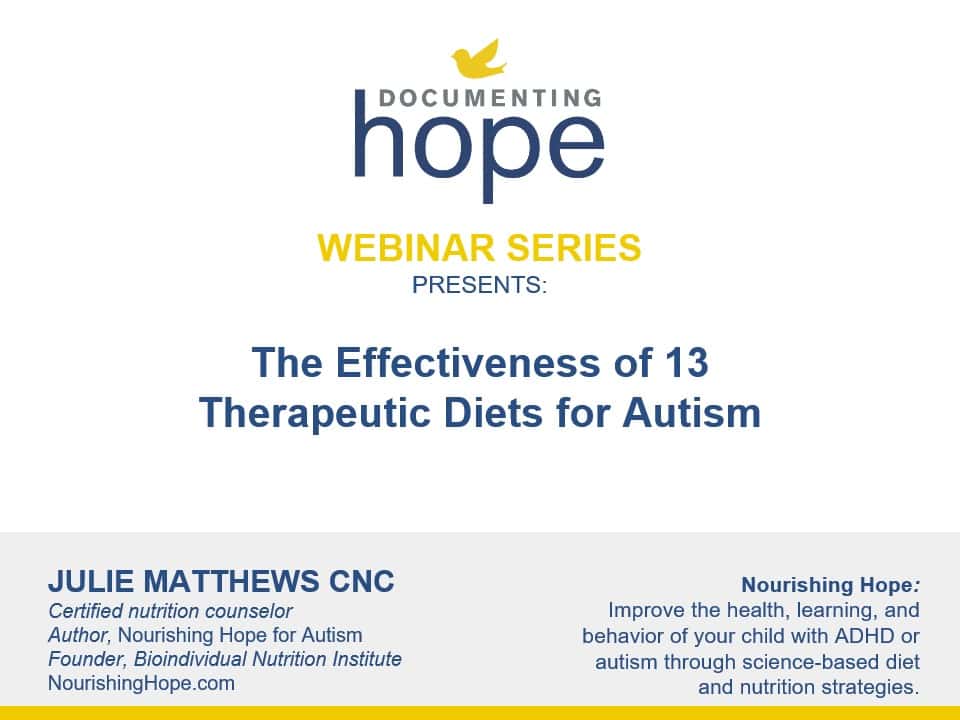Gluten has become a major topic of discussion in the world of pediatric health, often at the center of conversations about digestion, allergies, and chronic health issues. Many families find themselves confused by terms like “celiac disease,” “wheat allergy,” and the increasingly discussed “non-celiac gluten sensitivity” (NCGS). What does NCGS mean? How can you spot it, and what can you do to support your child with this condition?
What Is Non-Celiac Gluten Sensitivity?
Non-celiac gluten sensitivity is a clinical condition characterized by adverse symptoms triggered by ingesting gluten—a potentially problematic protein present in wheat, barley and rye—in people who do not have celiac disease or a wheat allergy. Gluten can also often be found in oats, as they are often cross-contaminated by the processing of wheat, barley or rye in the same mill.
NCGS often confuses both families and healthcare professionals because it doesn’t “fit” textbook definitions or produce classic, measurable antibodies or intestinal damage like celiac disease does. Here are some of the key distinctions among these gastrointestinal disorders:
- Celiac disease is an autoimmune disorder. Ingestion of gluten leads to an immune system attack on the small intestine, causing measurable damage, malabsorption, and a host of complications.
- Wheat allergy is an IgE-mediated allergic reaction and can cause rapid onset, dramatic symptoms, including hives, swelling, or even anaphylaxis.
- Non-celiac gluten sensitivity is not an IgE-mediated allergic reaction and thus does not trigger classic allergic pathways. Instead, it results in a different type of immune response known as a sensitivity with symptoms that improve with gluten removal.
While celiac disease affects roughly 1% of the population, NCGS could be considerably more common. Estimates suggest NCGS may affect anywhere from 0.5% to 6% of the general population, and may possibly be higher in people presenting with chronic gut or neurological complaints. In particular, it may impact children or adults with chronic health issues—such as neurodevelopmental delays, ADHD, or digestive disturbances—who do not test positive for celiac disease or allergies but consistently improve when gluten is removed from their diet.
What Are Common Symptoms of Non-Celiac Gluten Sensitivity?
The symptoms of NCGS are wide-ranging and can overlap with both celiac disease and irritable bowel syndrome (IBS), which makes diagnosis tricky. Symptoms can vary from gastrointestinal, neurological or even behavioral. Common symptoms include:
- Abdominal pain
- Bloating
- Gas
- Diarrhea
- Constipation
- Nausea
- Brain fog
- Headaches or migraines
- Fatigue
Symptoms typically arise hours to days after gluten ingestion and often resolve upon gluten withdrawal, only to recur again if gluten is reintroduced. Unlike celiac disease, NCGS is not typically associated with long-term intestinal damage, but the symptoms can sometimes have a profound effect on quality of life.
What to Do When Non-Celiac Gluten Sensitivity Is Suspected?
Because NCGS cannot be diagnosed by blood test, endoscopy, or biopsy, diagnosis relies on a careful clinical process and a cooperative, observant patient or caregiver. In children with complex medical conditions, it’s important to have professional guidance.
One of the biggest challenges with NCGS is the lack of a standardized, objective medical test. Current diagnostics work mostly by excluding other conditions. If your child experiences symptoms that you suspect may be related to gluten intake, consider the following steps:
- Do not immediately remove gluten. This is counterintuitive, but if celiac disease or wheat allergy is a possibility, your child must continue eating gluten-containing foods for accurate testing. Removing gluten beforehand can cause test results to become falsely negative.
- Consult a knowledgeable healthcare practitioner. Work with someone experienced in pediatric functional or integrative medicine to help navigate testing, possible confounding diagnoses, and diet changes. Take a look at our practitioner directory for help in finding local experts.
- Pursue initial testing for celiac disease and wheat allergy. This may include blood tests for celiac-specific antibodies (IgA anti-tTG, EMA, DGP), total IgA, and possibly genetic markers, as well as allergy testing.
- If tests are negative, consider a supervised gluten-elimination trial. After celiac and allergy have been ruled out, a strict gluten-elimination diet for 4-8 weeks can be tried to see if symptoms resolve.
- Reintroduce gluten and observe. Be sure to keep a daily log of foods that are eaten and any unusual symptoms that appear within a three-day window. If symptoms dramatically return upon gluten challenge, NCGS becomes likely.
Be sure to look at the bigger picture with your practitioner by:
- Examining your child’s gut health more broadly. Are they pooping every day
- Screening for nutrient deficiencies such as zinc, magnesium or vitamin D.
- Optimizing the gut microbiome. Many children with suspected NCGS also have wider patterns of gut dysbiosis (imbalance in gut flora), which requires holistic support for true healing.
What Are Options for Non-Celiac Gluten Sensitivity?
The central course of action for NCGS is to follow a gluten-free diet. However, this advice cannot be given in a vacuum. Families and practitioners must ensure that the diet remains balanced, nourishing, and practical, especially for growing children. Here are a few strategies to follow:
- Follow a strict gluten-free diet. Unlike some food sensitivities, a little bit of gluten may still trigger symptoms, so it’s important to remove all sources of wheat, barley, rye and non-gluten-free oats from the diet.
- Optimize the overall diet. Focus on real, whole foods, increase plant diversity to improve gut health, and minimize processed foods.
- Support the gut microbiome with the the “three Fs” from Elisa Song’s book, Healthy Child, Happy Child: Fiber, fermented foods, and phytonutrients. These help heal the gut lining and support digestive health.
- Correct nutritional deficiencies. Children with gluten sensitivity (even those without celiac disease) may have low levels of key nutrients such as zinc, B vitamins, vitamin D, and magnesium.
- Address lifestyle and stress. Chronic stress, lack of sleep, and sedentary habits can all worsen gut health and hinder recovery.
Educating and empowering your child can help them understand why gluten is being removed. Be sure to:
- Involve them in reading labels
- Make meals “pop” with different vegetables, herbs and spices
- Involve them in choosing and cooking foods for meals
- Build positive, lasting habits rather than approaching the diet as deprivation or punishment
- Help them make the connection between the effect of certain foods for their particular bodies and physiological symptoms that they feel after eating such foods
What Does Research Say About Non-Celiac Gluten Sensitivity?
Non-celiac gluten sensitivity has historically been a controversial diagnosis, but recent research increasingly validates its existence as a distinct clinical syndrome. Multiple studies confirm that some individuals experience genuine, reproducible symptoms with gluten exposure, even without celiac disease or wheat allergy (see Sources & References, below). These studies highlight the role of gluten sensitivity in conditions as varied as IBS, neurodevelopmental disorders, mood disorders and autoimmune diseases, even when celiac tests are negative.
The cause of NCGS remains under study. Unlike celiac disease, NCGS may have something to do with increased levels of zonulin — a marker for leaky gut. Some research suggests innate immune activation, changes in gut permeability, and alterations in the microbiome may all play a role. Exposure to pesticides such as glyphosate, hybridization of wheat to make it more gluten-dense, short fermentation times of gluten-containing breads, and/or exposure to antibiotics are other potential factors leading to this diagnosis.
NCGS appears to be a more U.S.-based phenomenon, especially in comparison to European countries, as many U.S. travellers have noted that they tolerate European gluten-containing foods very well without problematic consequences. Mounting anecdotal stories lead one to conclude that it may not be the food itself that is the problem, but what has been done to it or added to it.
Conclusion
Non-celiac gluten sensitivity represents a genuine, often under-recognized cause of chronic gastrointestinal, physiological and/or behavioral symptoms in both children and adults. While clear-cut laboratory or biopsy markers are lacking, a supervised removal of gluten often yields significant improvements for those with chronic health conditions as described above.
About Maria Rickert Hong CHHC
Maria Rickert Hong is a Co-Founder of, and the Education and Media Director for, Documenting Hope.
She is a former sell-side Wall Street equity research analyst who covered the oil services sector at Salomon Smith Barney and Lehman Brothers under Institutional Investor #1 ranked analysts.
Later, she covered the gaming, lodging & leisure sector at Jefferies & Co. and Calyon Securities. She quit working on Wall Street when her first son was born.

Prior to working on Wall Street, she was a marketing specialist for Halliburton in New Orleans, where she also received her MBA in Finance & Strategy from Tulane University.
She is the author of the bestselling book Almost Autism: Recovering Children from Sensory Processing Disorder and the co-author of Brain Under Attack: A Resource for Parents and Caregivers of Children with PANS, PANDAS, and Autoimmune Encephalitis. She is a co-author of Reversal of Autism Symptoms among Dizygotic Twins through a Personalized Lifestyle and Environmental Modification Approach: A Case Report and Review of the Literature, J. Pers. Med. 2024, 14(6), 641.
Maria is also a Certified Holistic Health Counselor. Her work can be found on DocumentingHope.com, Healing.DocumentingHope.com, Conference.DocumentingHope.com and MariaRickertHong.com
Still Looking for Answers?
Visit the Documenting Hope Practitioner Directory to find a practitioner near you.
Join us inside our online membership community for parents, Healing Together, where you’ll find even more healing resources, expert guidance, and a community to support you every step of your child’s healing journey.
Sources & References
Adams, J.B., et al. Comprehensive Nutritional and Dietary Intervention for Autism Spectrum Disorder-A Randomized, Controlled 12-Month Trial. Nutrients. 2018 Mar 17;10(3).
Aufiero, V.R., et al. Non-Celiac Gluten Sensitivity: How Its Gut Immune Activation and Potential Dietary Management Differ from Celiac Disease. Mol Nutr Food Res. 2018 May;62(9):e1700854.
Catassi, C., et al. Diagnosis of Non-Celiac Gluten Sensitivity (NCGS): The Salerno Experts' Criteria. Nutrients. 2015 Jun 18;7(6):4966-77.
Catassi, C., et al. Non-Celiac Gluten sensitivity: the new frontier of gluten related disorders. Nutrients. 2013 Sep 26;5(10):3839-53.
Catassi, C., et al. The Overlapping Area of Non-Celiac Gluten Sensitivity (NCGS) and Wheat-Sensitive Irritable Bowel Syndrome (IBS): An Update. Nutrients. 2017 Nov 21;9(11):1268.
Cekici, H., et al. Current Nutritional Approaches in Managing Autism Spectrum Disorder: A Review. Nutr. Neurosci. 2019;22:145–155.
El-Rashidy, O., et al. Ketogenic Diet versus Gluten Free Casein Free Diet in Autistic Children: A Case-Control Study. Metab. Brain Dis. 2017;32:1935–1941.
Ghalichi, F., et al. Effect of Gluten Free Diet on Gastrointestinal and Behavioral Indices for Children with Autism Spectrum Disorders: A Randomized Clinical Trial. World J. Pediatr. 2016;12:436–442.
Greuter, T., et al. The perspective of celiac disease patients on emerging treatment options and non-celiac gluten sensitivity. Dig Liver Dis. 2017 Mar;49(3):268-272.
Hartman, R.E., et al. Dietary Approaches to the Management of Autism Spectrum Disorders. Adv. Neurobiol. 2020;24:547–571.
Herbert, M.R., et al. Autism and Dietary Therapy: Case Report and Review of the Literature. J. Child. Neurol. 2013;28:975–982.
Hollon, J., et al. Effect of gliadin on permeability of intestinal biopsy explants from celiac disease patients and patients with non-celiac gluten sensitivity. Nutrients. 2015 Feb 27;7(3):1565-76.
Hsu, C.-L., et al. The Effects of a Gluten and Casein-Free Diet in Children with Autism: A Case Report. Chang Gung Med. J. 2009;32:459–465.
Julian, T., et al. Gluten sensitivity and epilepsy: a systematic review. J Neurol. 2018 Aug 23.
Karakula-Juchnowicz, H., et al. The Food-Specific Serum IgG Reactivity in Major Depressive Disorder Patients, Irritable Bowel Syndrome Patients and Healthy Controls. Nutrients. 2018 Apr 28;10(5). pii: E548.
Karakula-Juchnowicz, H., et al. The role of IgG hypersensitivity in the pathogenesis and therapy of depressive disorders. Nutr Neurosci. 2017 Feb;20(2):110-118.
Knivsberg, A.M., et al. A Randomised, Controlled Study of Dietary Intervention in Autistic Syndromes. Nutr. Neurosci. 2002;5:251–261.
Lee, R.W.Y., et al. A Modified Ketogenic Gluten-Free Diet with MCT Improves Behavior in Children with Autism Spectrum Disorder. Physiol. Behav. 2018;188:205–211.
Lionetti, E., et al. Gluten Psychosis: Confirmation of a New Clinical Entity. Nutrients. 2015 Jul 8;7(7):5532-9.
Llanos-Chea, A., et al. Gluten and Functional Abdominal Pain Disorders in Children. Nutrients. 2018 Oct 12;10(10):1491.
Marí-Bauset, S., et al. Nutritional Impact of a Gluten-Free Casein-Free Diet in Children with Autism Spectrum Disorder. J. Autism Dev. Disord. 2016;46:673–684.
Martin, V.T., et al. Diet and Headache: Part 1. Headache. 2016 Oct;56(9):1543-1552.
Matthews, J.S., et al. Ratings of the Effectiveness of 13 Therapeutic Diets for Autism Spectrum Disorder: Results of a National Survey. J Pers Med. 2023 Sep 29;13(10):1448.
Pelsser, L.M., et al. Effects of a restricted elimination diet on the behaviour of children with attention-deficit hyperactivity disorder (INCA study): a randomised controlled trial. Lancet. 2011 Feb 5;377(9764):494-503.
Piwowarczyk, A., et al. Gluten-Free Diet in Children with Autism Spectrum Disorders: A Randomized, Controlled, Single-Blinded Trial. J. Autism Dev. Disord. 2020;50:482–490.
Quan, L., et al. A Systematic Review and Meta-Analysis of the Benefits of a Gluten-Free Diet and/or Casein-Free Diet for Children with Autism Spectrum Disorder. Nutr. Rev. 2022;80:1237–1246.
Rizwan, M.Z., et al. Dietary wheat gluten induces astro- and microgliosis in the hypothalamus of male mice. J Neuroendocrinol. 2023 Jul 17;e13326.
Rostami, K., et al. Gluten Induces Subtle Histological Changes in Duodenal Mucosa of Patients with Non-Coeliac Gluten Sensitivity: A Multicentre Study. Nutrients. 2022 Jun 15;14(12):2487.
Serena, G., et al. Celiac Disease and Non-celiac Wheat Sensitivity: State of Art of Non-dietary Therapies. Front Nutr. 2020 Sep 8:7:152.
Stockton, S., et al. The Impact of a Food Elimination Diet on Collegiate Athletes’ 300-meter Run Time and Concentration. Glob Adv Health Med. 2014 Nov;3(6):25-40.
Verena, L., et al. Elimination diets’ efficacy and mechanisms in attention deficit hyperactivity disorder and autism spectrum disorder. Eur Child Adolesc Psychiatry. 2017; 26(9): 1067–1079.
Whiteley, P., et al. The ScanBrit Randomised, Controlled, Single-Blind Study of a Gluten- and Casein-Free Dietary Intervention for Children with Autism Spectrum Disorders. Nutr. Neurosci. 2010;13:87–100.
Yu, Y., et al. Efficacy and Safety of Diet Therapies in Children With Autism Spectrum Disorder: A Systematic Literature Review and Meta-Analysis. Front. Neurol. 2022;13:844117.
Resources
Articles
Callahan, Alice. Is the Bread in Europe Better for You? The New York Times, 24 Jul 2025.
Books
Bock, Kenneth. Healing the New Childhood Epidemics: Autism, ADHD, Asthma, and Allergies: The Groundbreaking Program for the 4-A Disorders. New York, NY. Ballantine Books, 2008.
Dorfman, Kelly. Cure Your Child with Food: The Hidden Connection Between Nutrition and Childhood Ailments. Workman Publishing Company, 2013.
Fasano, Alessio. Gluten Freedom: The Nation's Leading Expert Offers the Essential Guide to a Healthy, Gluten-Free Lifestyle. Trade Paper Press, 2014.
Hong, Maria Rickert. Almost Autism: Recovering Children from Sensory Processing Disorder, A Reference for Parents and Practitioners. 2014.
Lewis, Lisa. Special Diets for Special Kids: Updated Gluten-Free, Casein-Free Recipes You’ll Love. Future Horizons, 2023.
Matthews, Julie. Nourishing Hope for Autism: Nutrition and Diet Guide for Healing Our Children. Healthful Living Media, 2008.
Matthews, Julie. The Personalized Autism Nutrition Plan: Nourishing Hope for Kids with ASD, ADHD, Anxiety, and Neurodevelopmental Delays. BenBella Books, 2025.
Seroussi, Karen. Unraveling the Mystery of Autism and Pervasive Developmental Disorder: A Mother's Story of Research & Recovery. Harmony, 2002.







